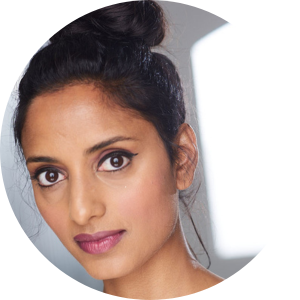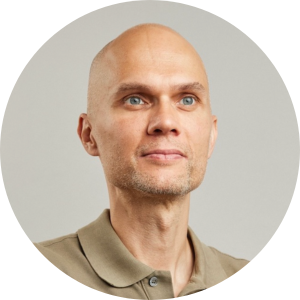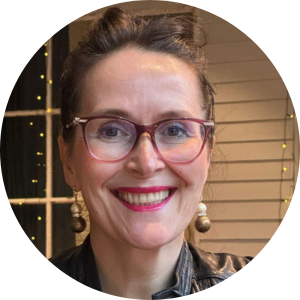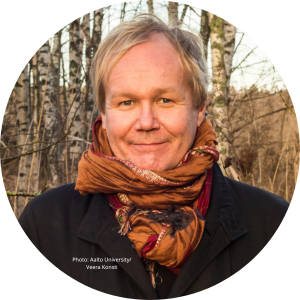Intertwining Biological and Machine Intelligences
Vyjayanthi Vadrevu, CEO, Incluya
Overview
In an era where data permeates every aspect of existence, the boundaries between biological intelligence, material environments, and digital information are becoming increasingly fluid. This panel debates whether datafication is fundamentally reshaping the ways humans think, learn, heal, and adapt within their material worlds.
This session brings together perspectives from the social sciences, fine arts, and design. Speakers examine critical questions: How are wearable technologies and environmental sensors changing our understanding of health and wellbeing? What happens when machine learning algorithms begin to influence human behavior and ecosystem management? How do datafied practices alter patterns of learning and social interaction? And what are the unintended consequences when biological and artificial intelligences become increasingly intertwined?
Speakers

Vyjayanthi Vadrevu, CEO at Incluya, is an anthropologist and Indian classical dance by training. She is the founder of Incluya, where she and her team have developed an emotionally intelligent, ethical AI coach that guides people from financial anxiety to financial resilience. The company was born out of her years of anthropological research for Capital One and other financial institutions, where her philosophy of looking at problems holistically and culturally led to deeply impactful solutions. A former adjunct professor of Applied Anthropology and Autoethnography at the City University of New York, Vyjayanthi also founded the consultancy Rasa, where she applies anthropological insights to drive product innovation and marketing across tech, fashion, and nonprofit sectors. Her unique perspective is further enriched by grapheme synesthesia, which, combined with her background in prose and movement, allows her to connect with the deepest aspects of human experience and perceive the world in extraordinary ways.

Miklu Silvanto, is an industrial designer and entrepreneur, currently serving as Chief Design Officer at ŌURA. He leads the software and industrial design teams, overseeing the end-to-end member experience and visual design of ŌURA’s hardware and software products. Silvanto spent nearly a decade at Apple on Jony Ive’s Industrial Design team, contributing to the design of several generations of MacBooks, the iPad Pro family, Apple Pencil, and various input devices. After leaving Apple, he held design leadership roles at Airbnb and Bang & Olufsen, where he built and led the company’s first internal design team. An alumnus of the Royal College of Art, Silvanto co-founded the Finnish design agency Aivan and has been involved in ventures like Vaarnii, a furniture company with a uniquely Finnish perspective, and Elo Health, focusing on smart nutrition. His work consistently explores the intersection of technology, design, and human.

Aija Lulle is an Associate Professor at the University of Eastern Finland and guest Professor at Riga Stradiņš University. With a range of expertise in migration and ethnic studies, she currently pursues an innovative agenda on gender, ageing and knowledge production. Her current project Menopausing: Exploring Diversity, Awareness and Activism, funded by the Research Council of Finland, investigates how knowledge and awareness travel with networks of migrants, racialized minorities, and queer communities in exile. She is rapidly developing a global network for menopausing, and data design and critical data science are at the core of this collaboration. She is also a team leader in the UEF, INTERREG Baltic Sea Region project Enhancing Capacities in Disaster Risk Reduction by Facilitating Public-Civil Cooperation.

Teemu Leinonen is an Associate Professor of New Media Design and Learning at the Aalto University. He holds over two decades of experience in the field of research, design and development of technology-enhanced learning, applications, solutions and services. Teemu conducts research and publishes in different forums from learning sciences to human-computer interaction. He has published three books, tens of invited book chapters and peer-reviewed scientific articles in journals and conferences and more than twenty software prototypes. He is a well-known advocate of open source / free software in education, free knowledge and open education.
